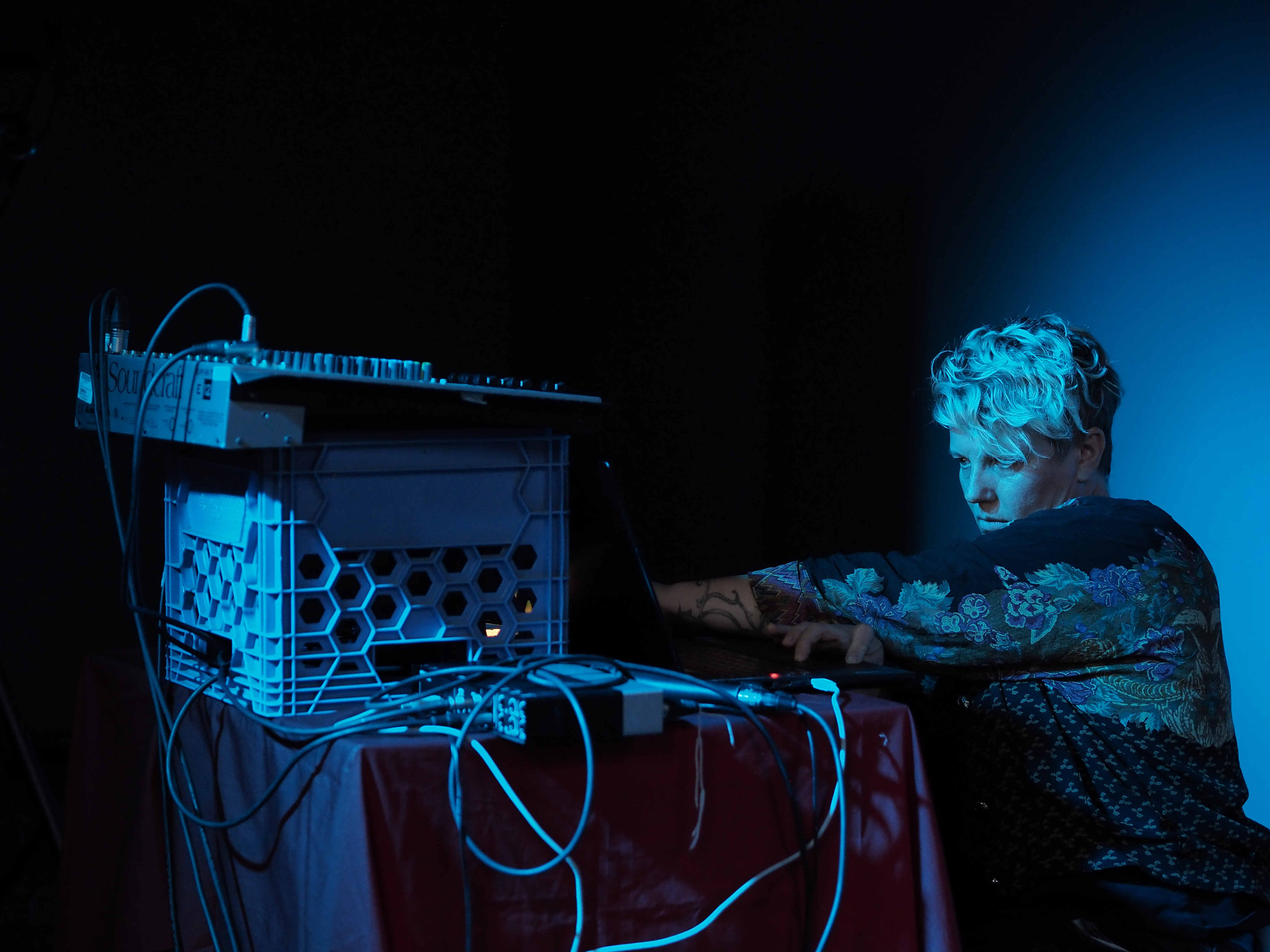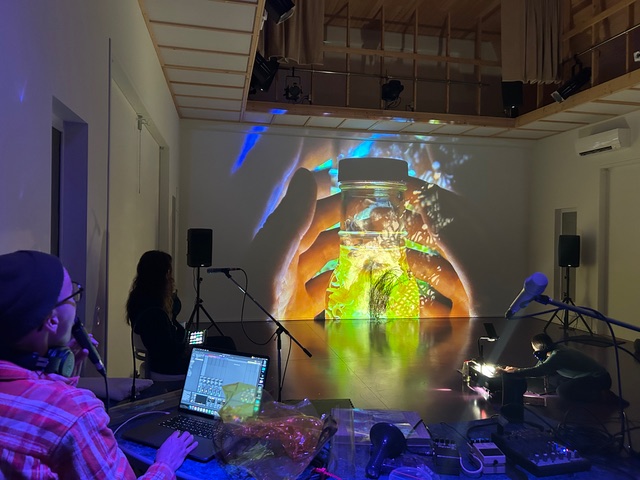

Listening as Activism explores how deep listening can be a form of resistance and social engagement in our noise-saturated world. In what ways might our individual and collective listening be aimed towards activism, and what might this look, sound and feel like? The evening opens with a roundtable discussion with Renae Morriseau, Harsha Walia, Hildegard Westerkamp and Freya Zinovieff, followed by performances by M’Girl Music and Kiki Connelly & the Understory.
This event is part of On Curation, a two-year mentorship project led by Vancouver New Music that supports experimental and forward-thinking approaches to sound and music curation. Mentors have been paired with emerging Canadian curators with a focus on deep, one-on-one exchanges that explore new models of curatorial practice to generate accessible and socially engaged programming.

M’Girl Music is an Indigenous women’s vocal and hand drum ensemble that’s been together for over 20 years. Managed by Renae Morriseau, she has been gifted songs through ceremony and composes hand drum songs in Cree and Saulteaux languages, her families’ language(s). As an interdisciplinary and inter-tribal artist, she has worked in the arts for most of her life. She currently teaches Indigenous film studies at Capilano University’s Indigenous Film program.
The collective of Indigenous women that sing with Renae are from different First Nations. Through loss of land, and the impact of residential schools that minimized Indigenous matrilineal lines, M’Girl celebrates the restoration of cultural practice of storytelling and song with, for and about Indigenous women.
Currently there are eight Indigenous women from Cree, Anishinaabe, St’at’imc, Tsimshian, and Mohawk peoples.
Renae’s hand-drum songs have been licensed to film, television and web series productions and she continues to celebrate Indigenous resurgence practices in reclaiming the joy and love of Indigenous languages, and stories of land, water, food and home.

Kiki Connelly & the Understory is an intimate, listening-centered ensemble rooted in voice, presence, and collective attention. Led by vocalist and songwriter Kiki Connelly, the group approaches performance as a relational act — one that privileges care, restraint, and deep listening over resolution or spectacle.
For this performance, the Understory features:
Together, the trio works with sparse, spacious arrangements, layered harmony, and text-driven song forms that invite listeners to sit with ambiguity, vulnerability, and the weight of what is heard — and what is not. Their music does not seek to soothe or resolve, but to remain present with complexity, cultivating listening as an ethical and communal practice.
In the context of Listening as Activism, Kiki Connelly & the Understory offer a performance shaped by attentiveness, humility, and an awareness of complicity — an offering that understands listening not as passive reception, but as a responsibility.

Freya Zinovieff is an interdisciplinary scholar, sound artist and curator of British and Russian descent, currently completing her PhD at The School of Interactive Arts and Technology, Simon Fraser University. Her thesis, Situated Praxis: Activist Listening in Violent Times, examines the political potential of sound, alongside decolonial and ethical listening as critique to hegemonic systems of power. Freya’s MFA, awarded by The University of New South Wales, questioned different conceptions of infinity through the medium of graphic notation, and she holds a First-Class Honours degree from Cambridge School of Art at Anglia Ruskin University.
Freya’s curatorial practice seeks to challenge both colonial hierarchies and aesthetic sensibilities, and foregrounds collaboration as an act of resistance. She is interested in work that that engages decolonial and anti-imperial thinking in radical ways, and especially through the amplification of voices that seek disruption for the purposes of justice and community building. Freya’s curatorial projects range from conceptual art trails in Cambridge (UK) that utilize non-gallery spaces, challenging colonial value judgements around what is considered art, or beautiful, and where ‘beautiful art’ should be shown; to an online sound art gallery that commissioned new works from five BC-based sound artists of marginalized gender, to explore the potential of accessible sound art.
More information on these projects and Freya’s work in general can be found in the below links:





